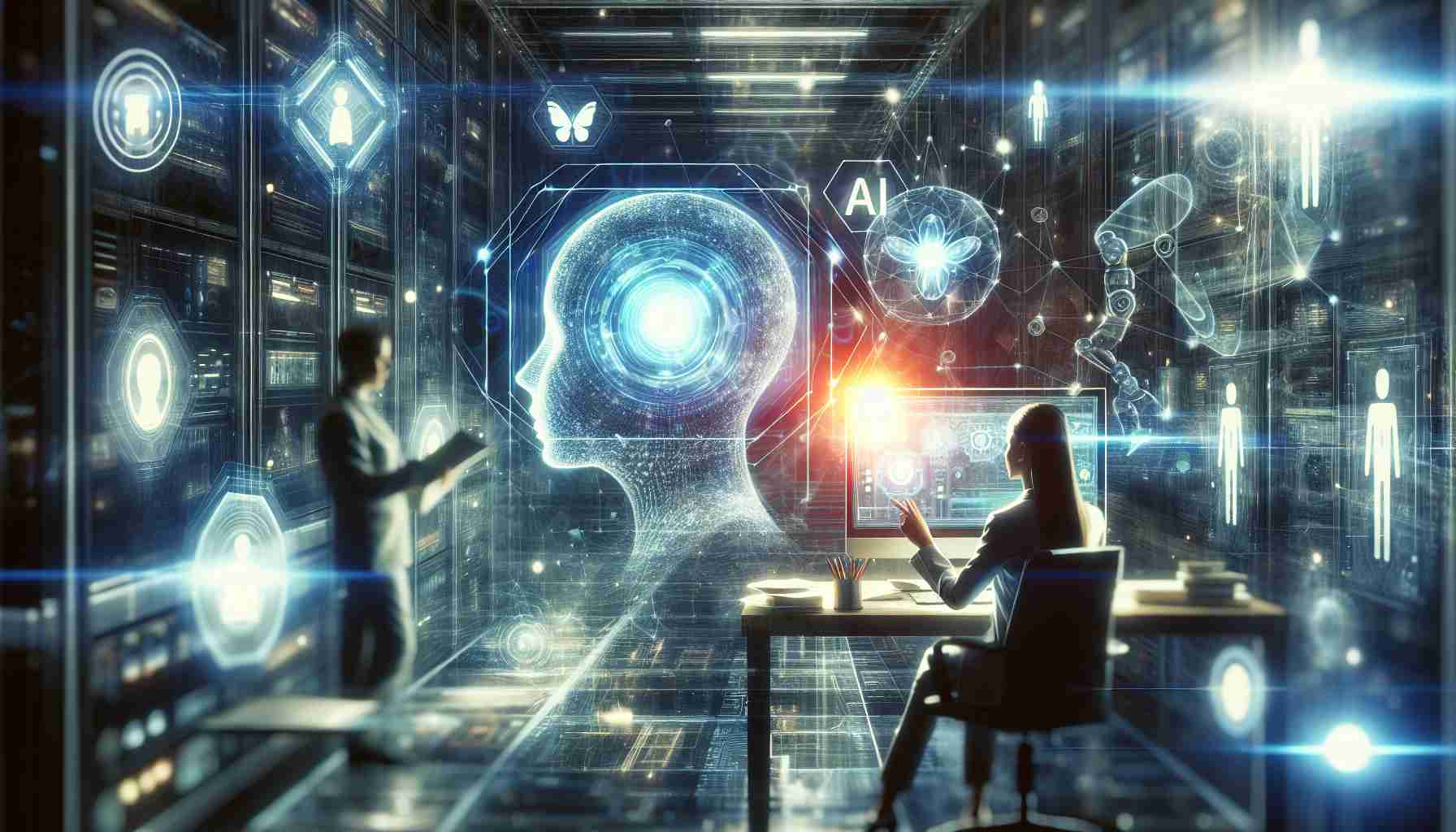- Shift perception of AI from fear to collaboration for enhanced workplace synergy.
- Interaction with AI helps demystify its capabilities and encourages teamwork.
- Employees should take initiative in integrating AI into their roles.
- AI can transform productivity by simplifying complex tasks into manageable steps.
- Career security may depend on embracing AI tools rather than resisting their growth.
- Nearly half of frequent AI users fear job obsolescence, highlighting the need for proactive adaptation.
In a bold statement at the World Economic Forum in Davos, PwC’s Global Chairman, Mohamed Kande, urged employees to shift their perception of artificial intelligence (AI) from a source of fear to a valuable digital colleague. By welcoming AI into the workplace, Kande highlighted that employees can learn to collaborate with these technologies instead of resisting them.
Kande explained that fear often stems from the unknown, suggesting that interaction with AI demystifies its capabilities and fosters teamwork. He encouraged workers to see AI as a partner rather than a rival, underlining that embracing technology is vital for success. Kande emphasized that the transformation must not come solely from leadership; rather, employees should lead the charge in integrating AI into their daily tasks.
The growing influence of AI is echoed by leaders from tech giants like Nvidia and Salesforce. They envision a future where AI agents support workers by breaking down complex tasks into manageable pieces, significantly enhancing productivity. Salesforce’s Marc Benioff pointed out that intelligent technologies could redefine productivity, making it less dependent on human labor and more reliant on scalable AI solutions.
Despite rising confidence in AI, a recent study revealed a lingering concern: nearly half of frequent AI users fear their jobs could be obsolete in the next decade. In contrast, only a quarter of non-users share this anxiety. The takeaway? Embrace AI now as a collaborative tool, and not only will it enhance your productivity, but it could also secure your place in the evolving workforce landscape.
Transforming Fear into Collaboration: The Future of AI in the Workplace
# The Evolving Role of AI as a Digital Colleague
At the World Economic Forum, PwC’s Global Chairman, Mohamed Kande, made an influential statement regarding the integration of artificial intelligence (AI) in the workplace, urging employees to view AI not as a threat, but as an essential digital colleague. As businesses increasingly adopt AI technologies, the need for a paradigm shift in how employees perceive these innovations becomes crucial.
Key Innovations and Trends
1. AI as a Collaborative Partner: Companies are developing AI systems that not only execute tasks but also collaborate with employees. Tools that break down complex processes into more manageable steps can lead to significant productivity boosts.
2. Market Forecasts on AI Adoption: The AI market is projected to grow substantially, with estimates suggesting it will reach $190 billion by 2025. This growth is indicative of increasing investment from companies aimed at enhancing operations through AI integration.
3. Insights on Workforce Transformation: Research indicates that organizations integrating AI into their workflows can see productivity enhancements by up to 40%, demonstrating the potential for AI to act as a strategic asset rather than a job displacer.
Most Important Questions
1. How can employees effectively collaborate with AI technologies?
– Employees should seek training programs that enhance their understanding of AI tools. This not only demystifies the technology but equips workers with the skills needed to leverage AI for creative problem-solving and efficiency.
2. What are the limitations of AI in the workplace?
– While AI can enhance productivity, it lacks the emotional intelligence and creativity inherent to humans. Employees should be aware that AI is a supplement to human capabilities, not a replacement.
3. What steps should companies take to alleviate employee fears about AI?
– Companies should foster an environment of open communication, providing training and resources that highlight how AI complements human work. Engaging employees in discussions about AI’s capabilities helps create a culture of transparency.
Additional Insights
– Use Cases of AI: Various industries, from finance to healthcare, are successfully employing AI. For example, in healthcare, AI algorithms assist doctors by providing diagnostic suggestions, effectively enhancing patient outcomes and operational efficiency.
– Security Aspects: With the adoption of AI, companies must consider security implications. AI systems should incorporate robust cybersecurity measures to protect sensitive data from breaches.
– Sustainability Trends: AI tools are being increasingly utilized to optimize resource usage in industries, contributing to sustainability initiatives by reducing waste and energy consumption.
For more detailed insights, visit PwC and explore the future of AI in the workplace and beyond.










